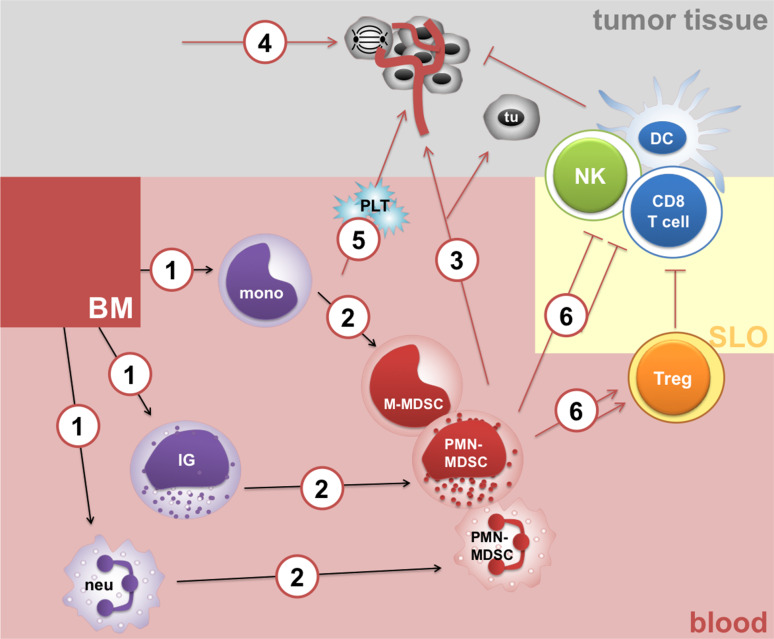Fig. 4.
Mechanisms of rhG-CSF immunosuppressive and tumor-promoting actions. rhG-CSF stimulates production of mature and immature myeloid cells (1), release of immature PMN-MDSCs and peripheral reprogramming of mature myeloid cells into M-MDSCs and mature PMN-MDSCs (2). In turn, rhG-CSF may contribute to MDSC-dependent cancer angiogenesis and metastasis (3), may directly stimulate the proliferation of tumor cells (tu) through their G-CSF receptors (4) and may contribute to a hypercoagulable state implicated in cancer progression (5). Finally, rhG-CSF inhibits T-cell function in MDSC-dependent and partially MDSC-independent manners and promotes Treg (6). BM bone marrow, SLO secondary lymphoid organ, tu tumor cell, PLT platelets

